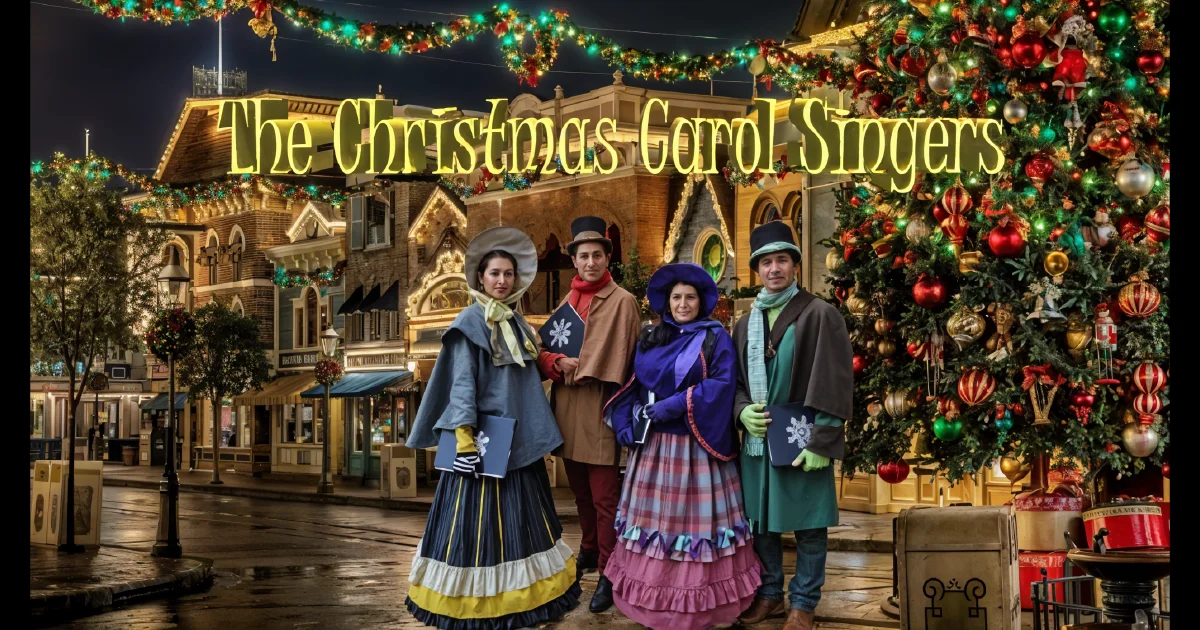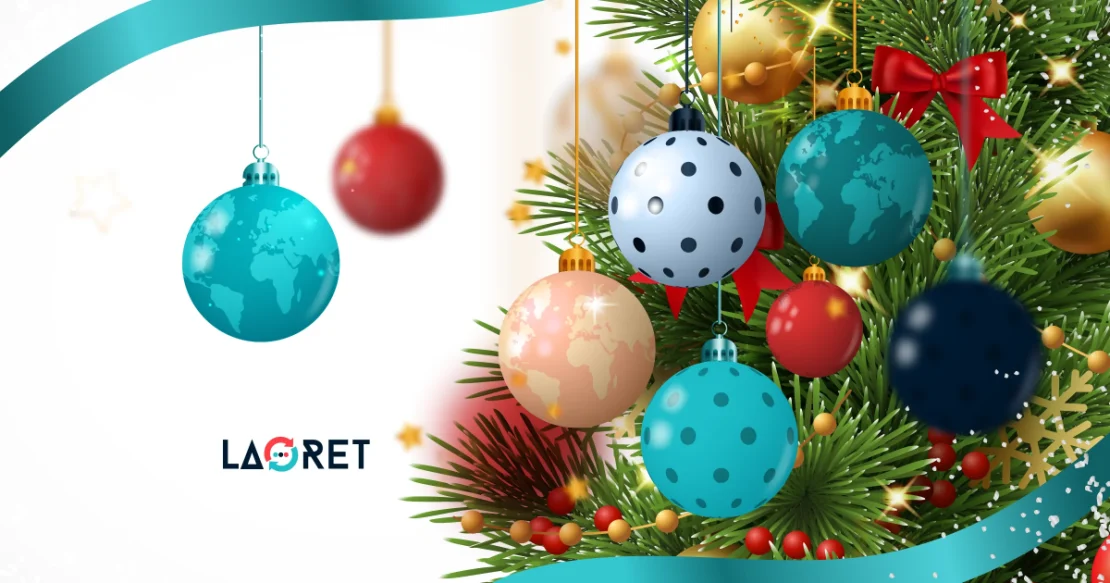Learn How to Say Merry Christmas in Different Languages
While Santa Claus might go by different names – from Père Noël to Babbo Natale – the joy of saying “Merry Christmas” connects people across cultures, languages, and traditions.
This year, spread the spirit of Christmas around the globe, go beyond the traditional “Merry Christmas” translation, and learn how to share authentic holiday wishes across Europe, Asia, and Africa – perfect for building lasting global connections.
Merry Christmas in different languages carries unique cultural meanings worldwide, so let’s make your season’s greetings truly special.
“Merry Christmas” Across Europe Languages
Christmas in Europe has common features despite varied celebrations. Some countries observe it on December 24, others on the 25th. Common activities include visiting Christmas markets, sending Christmas cards, and sharing special meals.
This season of giving also boosts the economy, as retailers enjoy their busiest time during the Christmas quarter.

So, to connect with a diverse audience across Europe in this festive month, let’s see how Merry Christmas in different languages is said across Europe!
Western European Greetings:
English speakers simply wish each other a “Merry Christmas,” conveying warmth and cheer. In contrast, French speakers express this sentiment with elegance by saying “Joyeux Noël,” making French translation services essential for capturing the festive spirit. Meanwhile, Germans celebrate the holiday with a hearty “Frohe Weihnachten.” To learn more, read more about our German translation services.
Portuguese voices share “Portuguese Feliz Natal.” In Italy, the melodic “Buon Natale” fills the air, while Dutch speakers celebrate with “Vrolijk Kerstfeest.” This diversity reflects the rich cultural traditions of Christmas. Explore Italian Translation Services to enhance your understanding of these beautiful greetings.
Each greeting tells its own story:
| English: | Merry Christmas |
| French: | Joyeux Noël |
| German: | Frohe Weihnachten |
| Spanish: | Feliz Navidad |
| Portuguese: | Feliz Natal |
| Italian: | Buon Natale |
| Dutch: | Vrolijk Kerstfeest |
| Belgian (Flemish): | Zalig Kerstfeest |
Northern European Greetings:
The charm of Northern European Christmas greetings lies in their similarities and subtle differences. Danes share a warm Danish Glædelig Jul, while Swedes and Norwegians both say “God Jul” – though with distinct accents. Finnish speakers have their own unique greeting, “Hyvää Joulua,” reflecting their non-Germanic language roots.
Here’s your Nordic holiday phrase guide:
| Danish: | Glædelig Jul |
| Swedish & Norwegian: | God Jul |
| Finnish: | Hyvää Joulua |
| Icelandic: | Gleðileg jól |
| Estonian: | Häid Jõule |
Eastern European Greetings:
Eastern European Christmas greetings often reflect the region’s rich cultural and religious traditions. Each phrase carries centuries of tradition, from Slavic to Baltic heritage. Polish families exchange “Wesołych Świąt,” while Croatian homes ring with “Croatian Cretan božić.”
Your Eastern European holiday greeting guide:
| Polish: | Wesołych Świąt |
| Croatian: | Cretan Božić |
| Russian: | С Рождеством (S Rozhdestvom) |
| Czech: | Veselé Vánoce |
| Slovak: | Veselé Vianoce |
| Hungarian: | Boldog Karácsonyt |
| Romanian: | Crăciun Fericit |
| Bulgarian: | Честита Коледа (Chestita Koleda) |
| Ukrainian: | Щасливого Різдва (Shchaslyvoho Rizdva) |
| Lithuanian: | Linksmų Kalėdų |
Other European Languages:
From the Mediterranean to the Baltics, each greeting carries its own musical charm. Greeks celebrate with “Greek Καλά Χριστούγεννα” (Kala Christougenna) – a phrase used in both Greece and Cyprus. In Malta, you’ll hear “Il-Milied it-Tajjeb” (ill-mil-YED it-TIE-yeb).
Your expanded European greeting guide:
| Greek/Cypriot Greek: | Καλά Χριστούγεννα (Kala Christougenna) – |
| Latvian: | Priecīgus Ziemassvētkus |
| Lithuanian: | Linksmų Kalėdų |
| Macedonian: | Среќен Божиќ (Sreken Bozik) |
| Romanian: | Crăciun Fericit |
| Maltese: | Il-Milied it-Tajjeb |
| Albanian: | Gëzuar Krishtlindjen |
These greetings reflect each region’s distinct alphabet, pronunciation, and cultural traditions, from the Cyrillic script of Macedonia to the unique characters of Greek.
Christmas Wishes Across Asian Languages
East Asian Greetings:
While Christmas isn’t traditionally celebrated in much of East Asia, it’s gaining popularity and blending with local customs. In Mandarin, the greeting is “圣诞快乐 (shèngdàn kuàilè). Japanese use “メリークリスマス (Merī Kurisumasu),” and Koreans say “메리 크리스마스 (Meri Krismas),” both adopting the English phrase transliterated. Chinese versions translate to “Holy Birth Happy.”
Your East Asian holiday greeting guide:
| Mandarin Chinese: | 圣诞快乐 (Shèngdàn kuàilè) |
| Cantonese: | 聖誕快樂 (Sing dan fai lok) |
| Japanese: | メリークリスマス (Merī Kurisumasu) |
| Korean: | 메리 크리스마스 (Meri Keuriseumaseu) |
| Macanese: | 聖誕快樂 (Sing dan fai lok) |
| Mongolian: | Зул сар баярлалаа (Zul sar bayarlalaa) |
Southeast Asian Greetings:
Many Southeast Asian greetings blend local languages with borrowed terms, reflecting the cultural fusion characteristic of the region.
Your Southeast Asian holiday greeting guide:
| Filipino/Tagalog: | Maligayang Pasko |
| Vietnamese: | Chúc Mừng Giáng Sinh |
| Indonesian: | Selamat Natal |
| Malay: | Selamat Hari Natal |
| Thai: | สุขสันต์วันคริสต์มาส (Suk san wan Christmas) |
| Khmer: | សួស្តី ណូអែល (Sous Sdei Noel) |
| Lao: | ສຸກສັນວັນຄຣິດສະມາດ (Souk san van Christmas) |
| Burmese: | ခရစ္စမတ် မင်္ဂလာပါ (Christmas mingalar par) |
| Tetum (East Timor): | Natal Diak |
South Asian Greetings:
Many South Asian languages incorporate the word “Christmas” into traditional blessing formats, while others like Bengali use completely native terms – “Borodin” literally means “big day.”
Your South Asian holiday greeting guide:
| Hindi: | क्रिसमस की शुभकामनाएं (Christmas ki shubhkamnayein) |
| Urdu: | کرسمس مبارک (Christmas Mubarak) |
| Bengali: | শুভ বড়দিন (Shuvo Borodin) |
| Sinhala: | සුභ නත්තල් (Suba Naththal) |
| Nepali: | क्रिसमसको शुभकामना (Chrismaska Subhakamana) |
| Tamil: | கிறிஸ்துமஸ் வாழ்த்துக்கள் (Christmas Vaazhthukkal) |
Merry Christmas in African Languages
Some of the African holiday greetings:
| East Africa | Southern Africa | West Africa | North Africa |
| Swahili: Heri ya Krismasi | Afrikaans: Geseënde Kersfees | Yoruba: Eku Odun Keresimesi | Egyptian Arabic: عيد ميلاد مجيد (Eid Milad Majid) |
| Amharic: መልካም ገና (Melkam Gena) | Zulu: UKhisimusi Omuhle | Igbo: Ekele Keresimesi | Moroccan Arabic: عيد ميلاد سعيد (Aid Milad Said) |
Each greeting reflects unique cultural traditions – Ethiopia celebrates Christmas on January 7th, while in Ghana, the Twi greeting “Afishapa” captures both Christmas and New Year celebrations.
The Spirit of Christmas: Celebrating Beyond Words
The Spirit of Christmas transcends borders and beliefs, with “Merry Christmas” expressed in countless ways while embodying joy, generosity, and connection across cultures. Christmas carols like “Silent Night,” originally “Stille Nacht,” have been translated into numerous languages, each reflecting its own cultural essence.
For example, in the Philippines, “Ang Pasko ay Sumapit” fills dawn masses, while Brazilian children sing “Noite Feliz.” These melodies unite people in the season’s joy, regardless of language
These variations enrich Christmas, illustrating how a single celebration can unite humanity while honoring our differences.

The Importance of Accurate and Culturally Appropriate Translations
Crafting meaningful holiday messages involves more than translating words; it’s about bridging cultural understandings. For instance, Japanese uses メリークリスマス (Merii Kurisumasu) to adopt Western customs while keeping Japanese characteristics, while Bengali’s শুভ বড়দিন (Shuvo Borodin), meaning “Great Day,” reflects a local interpretation of Christmas.
You should consider cultural sensitivity as:
- Some cultures may prefer more formal or religious greetings
- Timing matters – it is celebrated on different dates
- Visual elements need careful consideration (colors, symbols, imagery)
- Gift-giving customs vary significantly across regions
- Not all countries emphasize the commercial aspects equally
Partnering with a professional translation and localization provider during the holiday season is crucial. Accurate translation prevents misinterpretation, while culturally sensitive communication recognizes regional traditions.
In summary, investing in professional translation and localization services enhances communication, strengthens relationships, and maximizes the impact of your holiday initiatives.
Laoret: Wishing You a Merry Christmas in Every Language
As we’ve journeyed through Christmas greetings across continents, one thing becomes clear: every “Merry Christmas” carries its own cultural magic. At Laoret, we bring this magic to life through our network of over 120 language access.
From technical documentation to marketing campaigns, our industry-specialized translators help you connect meaningfully with your global audience, during Christmas and throughout the year.
Contact us today to discover how we can help you communicate effectively across cultures and languages. Happy Christmas!






